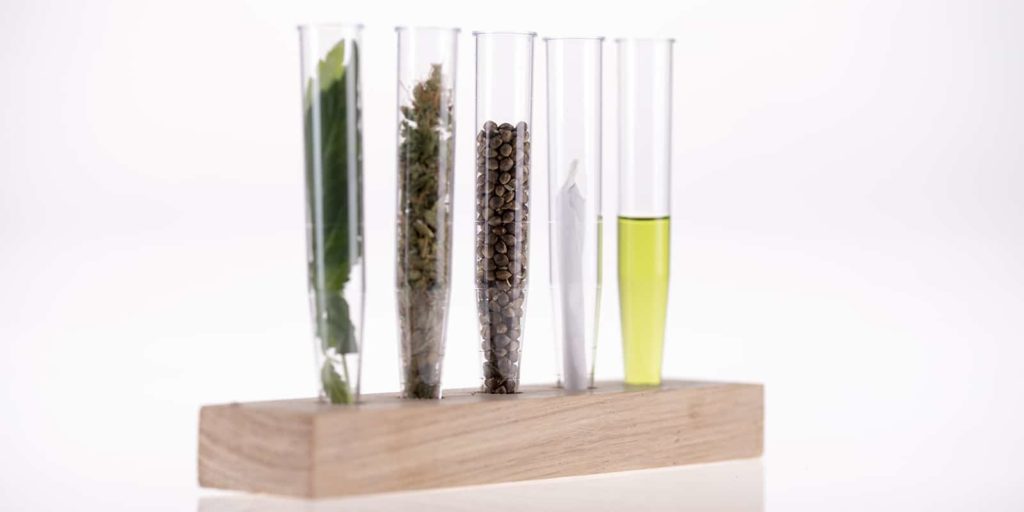8min. read
The legalization of cannabis for adults in the United States has been a positive cultural and political development, and it is a rapidly growing movement. It began in 1996 when California voters passed Proposition 215 legalizing medical marijuana for adults. Currently, 31 states, Washington D.C., Puerto Rico, and Guam permit it. In addition, nine states currently allow for the recreational adult use of cannabis. Given the nature of the product it’s no surprise there have been a number of issues related to implementing legalization. For instance, laws vary significantly from state to state and confusion over federal and state regulations exist as cannabis remains illegal under federal law.
The fact of the matter is, whenever a large cultural shift changes the legal landscape, there are always kinks, issues, and negotiations in working out the legal framework, regulations, and oversight of that change. Who will monitor the supply chain of cannabis for adults? Who will oversee that sales and cultivation practices aren’t abused by people simply trying to make a buck? Most importantly, are the cannabis products in your dispensary legitimate? In short, did you get what you paid for, and how would you really know? After all, when we consume cannabis products it is important to know what is going into our bodies.
Reasonable governance, regulations, testing, and oversight are important for the average adult who simply wants the right to purchase cannabis products. You should have confidence that whether you are buying cannabis for anxiety or for depression or even for adult use, the cannabis you are consuming is inherently safe. This is why lab testing is so critical for cannabis consumers. It’s part of the process that protects us and regulates cannabis cultivation. It’s been said that any right requires responsibility, and testing provides adults the freedom to buy cannabis products legally in an informed, consistent, and regulated way. Some of course argue that regulation and testing are unnecessary burdens for a plant. However, the same thing can be said for other agricultural products that are regulated to help ensure public safety.
Testing Cannabis for Adults
Medical and adult use of cannabis is a new, developing business and laws and regulations are still being fashioned to guide the legal cultivation, sale, and use of cannabis products for adults. In many states, the cannabis/medical marijuana, and other cannabis products that you buy at a dispensary are tested and monitored for safety and potency.
At the top of the oversight food chain, the U.S. Food and Drug Administration permits extremely limited medical marijuana research and sets the regulations and standards for it. The FDA is focusing on research for best practices, cultivation, testing, and labeling/marketing for potential pharmaceutical (drug company) sales rules at a national level.
Next on the list are state-level cannabis quality control boards that standardize the quality and safety of the cannabis that is sold, setting guidelines for testing for pesticides and toxins on a local level. These boards are evolving and developing more and more stringent quality and safety standards as the legalization process unfolds. Even one of the more liberal and open states, California, is implementing stringent health and safety standards, marketing standards, childproof safety standards, and potency level standards. This is being refined to better protect the health, welfare, and safety of everyone, even pets, not just cannabis users. Without a doubt, there is vocal and sustained pushback from California growers under this new system, but again, with rights and opportunity comes responsibility. Everyone needs to adjust to the testing standards and processes that are being implemented and hopefully growers, regulators, and testing labs will reach suitable compromises and accommodations.
Cannabis Testing Labs
Cannabis has become a legal multi-billion dollar industry in only a few years in the United States. This means tax revenue for state budgets and new, high paying jobs. Testing labs and the technology used for it are a large part of the industry. But what exactly is the process, what do they test for, and how do they go about it? How is a lab even started, does it get certified and who oversees lab standards? On the other hand, what do we know about the lab itself and its cannabis test results? Can they be trusted?
Again, state and FDA regulations exist to make sure that lab technicians are qualified and that licensed/accredited labs adhere to set standards. The labs themselves are governed, regulated, and overseen by each individual state as mandated by state law. While the standards and regulations on lab requirements themselves vary from state to state, all states have Good Laboratory Practice (GLP) and Good Manufacturing Practice (GMP) systems in place to maintain quality and safety control. There are also accreditation programs that have certification requirements to comply with various state guidelines.
In general, labs test for similar elements of the cannabis that is legally sold in each state, including:
Heavy Metals: Found in the soil or water and absorbed by the plant.
Residual Solvent Analysis: Solvents (such as ethanol) are used to extract various ingredients from the cannabis plant, then the solvent is removed and the residual solvent is tested for purity.
Contamination/Pesticides: In an exceptionally clean environment with no outside elements affecting the testing process, the cannabis is tested for physical contaminants and chemical contaminants (pesticides for example) that can be dangerous for consumption purposes.
Microbial Testing: This is another health and safety test as the cannabis is tested through sampling and microorganism testing (for toxic substances such as mold, bacteria, yeast, and other toxins). Too many microorganisms in cannabis can be unhealthy.
Potency and Terpene Analysis: The last two major tests that labs perform are for the potency of the drug, to make sure it has standard or above standard THC and CBD levels, and fragrance and flavor (the terpene profile) testing so that the flavor profile can be listed for customers to choose from when buying.
People need to know that generally, the quality of the modern cannabis tested at the labs is extremely good. These are professional cultivators and companies monitored by the law. The days of some guy growing cannabis in his garage and selling it out of the back of a van, are mostly over. But cannabis is a plant and naturally contains microorganisms, certain molds for example, which deliver elements of the drug that provide medicinal benefits to people. The general problem is that safe levels may be exceeded, so for safety, the labs can identify and inform the grower to eliminate the potentially harmful crops.
Benefits of Testing Cannabis for Adults
There are many benefits of lab testing of cannabis products, the primary one is that for cannabis sales to be legal, part of the trade-off is testing and standardization. Without that process, no responsible government would allow for the sale of any type of medicine, regardless of the benefits it may provide. There must be controls to protect the public and lab testing is a very good thing for the average cannabis user and even non-users in the community. Here’s why:
Health, Welfare, and Public Safety: This is the biggest and most important benefit of lab testing. It identifies potentially unhealthy elements that might be in the cannabis, even if it was grown in a safe professional environment. With plant life, mold grows, and it is always better to be safe when dealing with the health and welfare of the public.
Quality Control: This may sound strange, but labs do test for purity and effectiveness of the cannabis. The last thing anyone wants is to go into a legal dispensary, plunk down their hard earned cash and get a product that is substandard. Also, lab testing categorizes and profiles the various strains and products that are sold, so that you know that the cannabis is of a high quality. You can then learn what it should consistently smell and tastes like, so you can better identify what you like and buy what you want.
Enforcement of Best Cultivation Practices: Face it, if you went to a restaurant and found out that there were health code violations or unsanitary things going into the food you were eating, you’d want to avoid it, right? The same can be said for testing cannabis. You want to know what you are buying and putting in your body, that it is healthy and safe, and that the cannabis was grown and handled in a safe and proper manner. Lab testing allows for the ability to set controls that analyzes cannabis before you ingest it.
Feedback about Marijuana Testing and Marijuana Labs
As always please chime in on this topic as we want to hear from you. Medical Marijuana is still an emerging business, and the legalization of adult use is a recent development. It is important to know that you can buy cannabis products for adults for medical conditions with confidence, so testing what is being sold for potency, safety, and content is extremely important. As the FDA tests food and medicines for the same reason, it is important that we know what is going into our bodies is both good for us and safe and is what we expected when we purchased the product. If you have any questions about cannabis testing or lab processes, feel free to contact our medical experts or if you simply have any insight to share on this topic, please share it with us.
Don Eminizer is a freelance writer with twenty years of writing, editing and proofreading experience.




